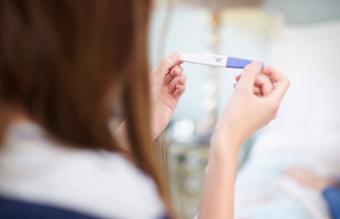
Many factors affect a woman's chances of conception, including diet, age, current and past fertility issues, her overall health, and the health of her partner.
Ten Tips to Improve Your Chances of Conception
Most couples become pregnant within 12 months of trying. For healthy couples with no fertility issues, the chance of conceiving each month is about 25 percent.
The following ten tips for men and women will help increase your chances of conception:
- Reduce your intake of caffeine. Studies show a link between delayed conception and excessive caffeine consumption. Moreover, high levels of caffeine may increase the risk of miscarriage. Limit your caffeine intake to 300 mg or less each day, or about three cups of coffee.
- Eat a healthy diet to increase your chances of becoming pregnant. Vitamin and mineral deficiencies can interfere with healthy sperm production. Zinc is necessary for proper testosterone levels and zinc deficiencies can reduce sperm counts. Zinc is also important for female fertility.
- Avoid alcohol and stop smoking as soon as possible. You should also avoid taking over-the-counter and prescription medications unless absolutely necessary.
- Switch to boxer shorts. Tight-fitting underwear and overheated testicles inhibit sperm production in men. Men should also avoid saunas, hot tubs, and rough sports.
- Watch for signs of ovulation and plan intercourse during that window of opportunity. Most women ovulate about 14 days before menstruation. Signs of ovulation include an increase in clear vaginal discharge and a rise in basal body temperature.
- Purchase an ovulation predictor kit to test for surges in luteinizing hormone. The level of this hormone increases in your urine about 24 to 36 hours prior to ovulation. Conception is most likely from three days prior to ovulation until one day after ovulation.
- Use an online fertility calculator to track your monthly menstrual cycle and determine your most fertile days each month.
- Exercise regularly to lose weight and reduce stress. Being overweight decreases your chances of becoming pregnant and the Mayo Clinic states that psychological stress interferes with fertility and reduces the effectiveness of infertility treatments. Getting exercise can help reduce stress.
- Get plenty of sleep each night. Sleeping at least 8 hours every night will increase your conception chances, relieve stress, and improve your overall health.
- Try acupuncture. The American Pregnancy Association recommends acupuncture treatments to improve blood flow to the endometrium and increase the likelihood of conception.
When to Seek Help
If you have been unsuccessfully trying to conceive for more than one year, it may be time to visit your doctor for further evaluation. Your doctor can order fertility tests, such as hormone tests and ultrasounds, to help determine the cause of your infertility. You may need to undergo a laparoscopy under general anesthesia so that your doctor can view your uterus, ovaries, and fallopian tubes for signs of scarring, endometriosis, blockages, or other problems.
According to the American Society for Reproductive Medicine, infertility affects an estimated 12 percent of all American couples. Of these couples, female infertility accounts for approximately 45 percent, while male infertility accounts for another 35 percent. In the remaining 20 percent of cases, both couples are infertile or the cause of infertility is unknown.
Causes of Female Infertility

- Ovulation disorders are responsible for 25 percent of infertility in females. Problems with the ovaries, pituitary gland, or hypothalamus can cause a dysregulation of reproductive hormones that leads to irregular or absent ovulation.
- The pituitary gland produces two hormones that play an essential role in ovulation: luteinizing hormone (LH) and follicle-stimulating hormone (FSH). Any disruption in the levels of these hormones can lead to irregular or absent periods.
- Polycystic ovary syndrome, or PCOS, causes an overproduction of androgens, which are a type of male hormone. Excess androgen levels can affect ovulation.
- Premature ovarian failure occurs when the body attacks the tissues of the ovary as part of an autoimmune response. This results in decreased estrogen production and egg loss.
- In some women, the ovaries produce insufficient progesterone following ovulation in what is known as a luteal phase defect. Progesterone is responsible for preparing the uterus for a fertilized egg.
- Fallopian tube damage may prevent sperm from reaching an egg or it may block a fertilized egg from traveling to the uterus for implantation. A history of ectopic pregnancies, previous abdominal surgery, and inflammation of the fallopian tubes due to infection with gonorrhea or chlamydia are the most common causes of damaged fallopian tubes.
- Endometriosis occurs when uterine tissue implants and grows in other areas of the reproductive tract. Both the abnormal tissue growth and scarring caused by surgical removal of the tissue can reduce a woman's chances of conception.
- Uterine fibroids and cervical stenosis can both cause infertility in women, as can a variety of other medical disorders.
Causes of Male Infertility
Low sperm count and sperm abnormalities account for more than 90 percent of male infertility cases. The remaining 10 percent of cases result from a variety of problems, including hormonal imbalances, anatomical problems, and genetic defects. Lifestyle, age, exposure to chemicals and toxins, and certain sexually transmitted diseases also play a role in male infertility.
Getting Help
A diagnosis of infertility does not necessarily mean you cannot get pregnant. Numerous effective treatments are available. Treatment depends on the cause of your infertility, your age, and your personal preference. Medications are available to regulate hormones and induce ovulation, and surgery can remove blockages and adhesions and repair damaged fallopian tubes. In vitro fertilization is an option when other treatment methods are unsuccessful or contraindicated.
If male infertility is a factor in your inability to conceive, your doctor may order drug treatment to correct hypogonadism and increase your chances of conception. Surgery is effective at correcting obstructions in the male reproductive tract and a procedure called intracytoplasmic sperm injection may help when sperm count or motility is a concern.
Remain Positive
Trying to get pregnant and dealing with infertility is emotionally and physically exhausting and high stress levels contribute to conception difficulties. Reach out to family members or join a support group for advice and encouragement if you are having trouble coping. Relax, stay positive, and take care of yourself to improve your chances of conception.







